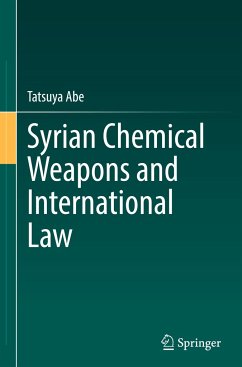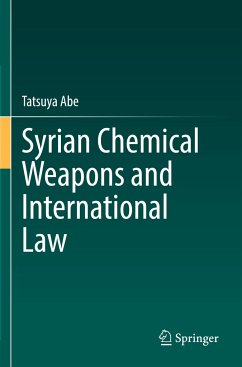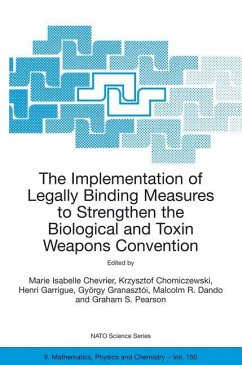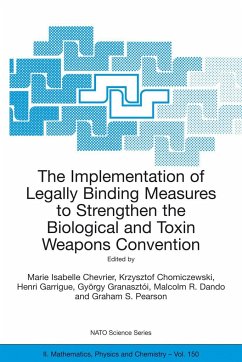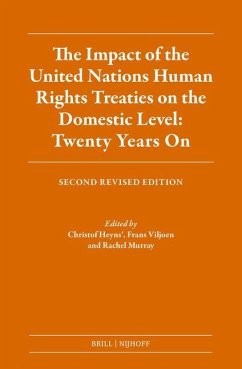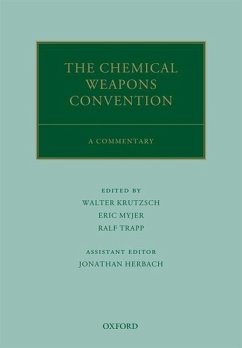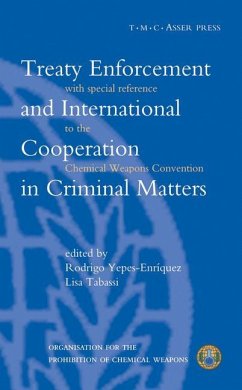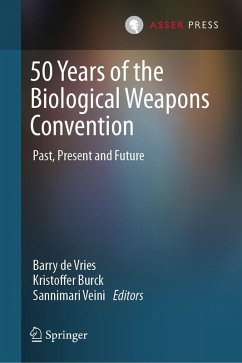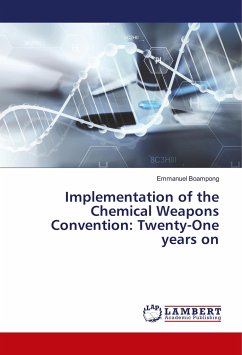
Implementation of the Chemical Weapons Convention: Twenty-One years on
Versandkostenfrei!
Versandfertig in 6-10 Tagen
22,99 €
inkl. MwSt.

PAYBACK Punkte
11 °P sammeln!
Since its entry into force, the Chemical Weapons Convention (CWC) has achieved vital successes regarding universality with as many as 192 states acceding to the convention as at the end of 2015. With Syria's decision to join the Convention and destroy its weapons, calls on states not party to the Convention to follow suit have increased. Among the four non-member states: Israel, Egypt, South Sudan and North Korea, the regime in Pyongyang, is probably the most difficult diplomatic challenge. A myriad of problems spanning several geographical areas have in one way or the other hindered the imple...
Since its entry into force, the Chemical Weapons Convention (CWC) has achieved vital successes regarding universality with as many as 192 states acceding to the convention as at the end of 2015. With Syria's decision to join the Convention and destroy its weapons, calls on states not party to the Convention to follow suit have increased. Among the four non-member states: Israel, Egypt, South Sudan and North Korea, the regime in Pyongyang, is probably the most difficult diplomatic challenge. A myriad of problems spanning several geographical areas have in one way or the other hindered the implementation of the Convention and are thus illustrated with case studies. Despite the vivid and sometimes inundating challenges facing the Convention and its implementation, the cumulated achievements of the Convention and its trustee agency far outweigh such hindrances. The challenges, however, present a greater opportunity for member states of the convention and the Organization for the Prohibition of Chemical Weapons (OPCW) to forge ahead towards an unadulterated implementation of the convention and a chemical weapons-free world.



